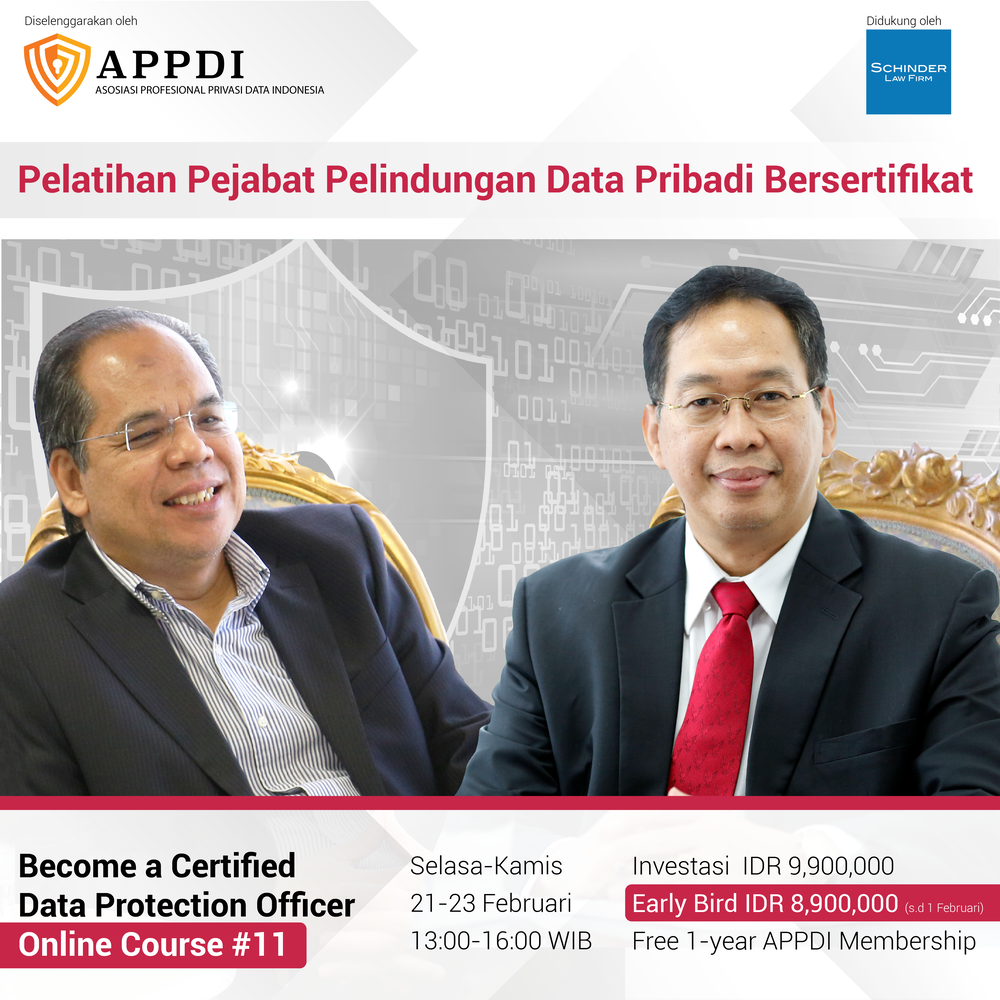On Wednesday, 15 May 2024, at the Balai Prajurit Ardhya Loka Building, Halim Perdana Kusuma, East Jakarta, the Master of Law Program, Faculty of Law, Universitas Dirgantara Marsekal Suryadarma organized a seminar on “Pertahanan Cyber dalam Pengelolaan Ruang Udara untuk Menegakkan Kedaulatan Negara di Wilayah Udara Nasional”.
Prof. Dr. Ida Bagus Rahmadi Supancana, Co-founder of Asosiasi Profesional Privasi Data Indonesia, who is also a distinguished Professor at Universitas Katolik Indonesia Atma Jaya, delivered a key presentation on “Policies and Strategies for Enhancing Cyber Security in Enforcing National Sovereignty in Airspace.” He spoke about advancements in cyber technology and their potential threats, developments in aviation technology and associated risks, strategies for enforcing national sovereignty in airspace, and addressing legal issues with potential solutions and future steps.
The event was moderated by Kolonel Kum Amelia Farissa Devi, S.H., M. Han, and featured a lineup of distinguished keynote speakers, including:
- Marsma TNI Agus Pramono, S.H., L.LM, Ph.D. (Head of Legal Affairs, TNI AU)
- Marsma TNI R. Tjahjo Khurniawan, S.T., M.SI.
- Dr. Sungkono, SE., MSi, Marsekal Muda TNI (Purn) (Rector of Universitas Dirgantara Marsekal Suryadarma), who gave a keynote speech about Cyber Security
Esteemed participants in attendance included:
- Laksamana Muda TNI Kresno Buntoro, S.H., LL.M., Ph.D. (Head of the Legal Development Agency, TNI)
- Brigjen TNI Tri Rana S, S.Sos., M.M. (Head of the Cyber Defense Center, Information and Communication Defense Agency, Ministry of Defense, RI)
- Ketua I Yasau, Ketua BPH, Ketua Senat
- Carrel Ticualu, S.E., S.H., M.H. (Chairman of DPC Peradi SAI North Jakarta)
- Vice Rectors and Deans of Universitas Dirgantara Marsekal Suryadarma
- Law students from various universities, including Universitas Indonesia (UI), Universitas Trisakti, Universitas Airlangga (Unair), Universitas Brawijaya, Universitas Sebelas Maret (UNS), Universitas Padjadjaran (Unpad),Universitas Pertahanan (Unhan), Universitas Kristen Indonesia (UKI), Universitas Borobudur, Universitas Mpu Tantular, STHM, UPN Veteran Law, Universitas Krisnadwipayana (UNKRIS), Universitas Pancasila, Universitas Katolik Atmajaya (UNIKA), Universitas Jenderal Achmad Yani (Unjani), and Universitas Hang Tuah, both in-person and online.
- Faculty members from the Law Faculty at Universitas Dirgantara Marsekal Suryadarma
- Undergraduate and graduate law students from Universitas Dirgantara Marsekal Suryadarma
- Various other participants from the general public, both in-person and online
Cyber Warfare: A Growing Threat to National Security
Cyber-attacks aimed at a country primarily intend to weaken the nation by damaging social cohesion, political stability, and military industrial capacity. While the lines between cyber warfare, cybercrime, and cyber terrorism may blur, cyber warfare is fundamentally not motivated by financial gain and is executed by state-affiliated actors. These actions often involve infiltrating or destroying networks, sabotaging infrastructure, and disrupting the operations of crucial organizations and institutions. The increasing trend of cyber threats parallels advancements in information technology, underscoring the need for ongoing research and assessment to address evolving techniques, tactics, and strategies in cyber defence.
In Indonesia, Law No. 3 of 2002 on National Defence outlines that threats to the national defence system include both military and non-military threats, such as “cyber” threats. The rise of cybercrime, especially through the internet, can escalate to levels that threaten national sovereignty, territorial integrity, and public safety. To manage and enhance national sovereignty over Indonesian airspace, a comprehensive national strategy for a modern and resilient cyber security framework is essential.
It is crucial for Indonesia to continuously refine and advance its cyber technology capabilities in terms of both science and technology and regulatory frameworks to effectively manage and secure its airspace, thereby upholding its territorial integrity.



